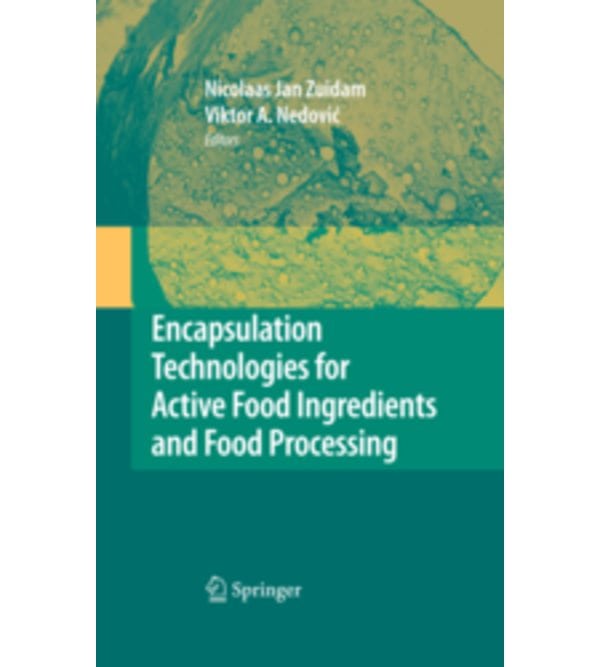
Login or create an account
CloseReturning Customer
I am a returning customer
Login or create an account
CloseRegister Account
If you already have an account with us, please login at the login form.
Ваша учетная запись создана!
Спасибо за регистрацию в ПрофКнига!
Вы будете уведомлены по электронной почте, как только Ваш Личный Кабинет будет активирован администрацией магазина.
Если у Вас есть какие-то вопросы, пожалуйста напишите нам.
Выход
Вы вышли из Личного Кабинета.
Ваша корзина покупок была сохранена. Она будет восстановлена при следующем входе в Ваш Личный Кабинет.
Encapsulation Technologies for Active Food Ingredients and Food Processing
- 4243 грн
- Автор: Zuidam N.J.
- Издательство: Springer
- Год издания: 2010
- Страниц: 400
- Склад: Под заказ
Consumers prefer food products that are tasty, healthy and convenient. Encapsulation is an important way to meet these demands by delivering food ingredients at the right time and right place. For example, encapsulates may allow flavour retention, mask bad tasting or bad smelling components, stabilize food ingredients and/or increase their bioavailability. Encapsulation may also be used to immobilise cells or enzymes in the production of food materials or products, such as fermentation or metabolite production. This book provides a detailed overview of technologies for preparing and characterisation of encapsulates for food active ingredients to be used in food products, food processing or food production. The book is aimed to inform people who work in the academia or R&D of companies on delivery of food compounds via encapsulation and on food processing using immobilized cells or enzymes, with both a limited and an advantaged knowledge of the field. The structure of the book is according to the use of encapsulates for a specific application. Emphasis has been put to strategy, since encapsulation technologies may change. Most chapters include application possibilities of the encapsulation technologies in specific food products or processes. The first part of the book reviews general technologies, food-grade materials and characterization methods for encapsulates. The second part of the book, discusses encapsulates of active ingredients (i.e. aroma, fish oil, minerals, vitamins, peptides, proteins, probiotics) for specific food applications. The last part of the book describes immobilization technologies of cells and enzymes for use within food fermentation processes (like beer, wine, dairy and meat) and food production (e.g., sugar conversion, production of organic acids or amino acids, and hydrolysis of triglycerides). Edited by two leading experts in the field, Encapsulation Technologies for Food Active Ingredients and Food Processing will be a valuable reference source for those working in the academia or food industry. The editors work either in industry or university, and they have brought together in this book contributions from both fields. Dr. Nicolaas Jan (Klaas-Jan) Zuidam is leading the skillbase group ‘Controlled Delivery of Food Actives’ and is a member of the management team of the Flavour Generation & Delivery department within Unilever Research and Development in Vlaardingen, The Netherlands. Since 1990, he has been working on encapsulation, respectively, in the area of pharmaceutics, gene therapy, laundry and foods. He is an author of more than 35 peer-reviewed articles and book chapters, and holds 2 patents. Dr. Viktor A. Nedovic is an associate professor at the Department of Food Technology and Biochemistry, Faculty of Agriculture, University of Belgrade, Belgrade, Republic of Serbia. Since 1989, he has been working on immobilisation, co-immobilisation, encapsulation and bioreactor system design in the fields of food production and fermentation processes. He is an author of around 200 articles published in journals, books and proceedings. He has also served as co-editor of two important books on cell immobilisation: Fundamentals of Cell Immobilisation Biotechnology (Kluwer Academic Publisher, 2004) and Applications of Cell Immobilisation Biotechnology (Springer, 2005).
- ISBN: 978-1-4419-1007-3
- Язык издания: EN
- Обложка: М'яка
- Вес: 1,000г

